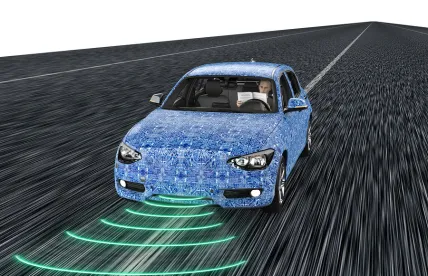In recent years, perhaps no emerging technology has captured the attention of the public more than self-driving cars, or autonomous vehicles (AV). Once thought to be the stuff of sci-fi literature, AV technology is on the streets today, even if in a highly-controlled and regulated manner. In fact, my oldest son – who describes himself as a “car enthusiast” – and I have a bet on when AV technology will become mainstream. In a reversal of our ordinary roles, he tends to be more conservative, while I insist that it will be commonplace before his youngest siblings apply for their driver’s licenses.
AV technology holds the promise of significantly reducing the number of crashes and injuries caused on our roads every day. But while this is enough to justify the interest in AV technology, the societal benefits are even greater. Indeed, with fewer accidents come reduced costs in the form of insurance, highway and other transportation infrastructure, and reduced impact on our environment.
The rise of autonomous vehicles also likely portends significant changes to our tort system. As many commentators have noted, the natural progression of AV technology will eventually shift the liability for crashes away from the driver, and onto the AV manufacturer. Yet this shift will be gradual, as the technology transitions from tools to assist the driver (such as auto-braking systems or lane departure warnings that are in vehicles today), to a fully-autonomous vehicle, where no driver attention is required. Indeed, it is likely that the uncertainties with how tort law will evolve to meet changing AV capabilities will be at their greatest during this transition period. For this reason, states may decide that a no-fault tort system might be most suited for the AV world – where an injured passenger receives fair compensation for his or her injuries without needing to prove negligence of a third party.
These changes in tort law will, of course, have dramatic effects on the automobile insurance industry. As crashes decrease, the cost of liability insurance will naturally decrease as well. In addition, it is likely that AV technology will quickly eliminate most, if not all, minor accidents that result from human error, dramatically effecting carriers’ underwriting practices, which now focuses on just those types of crashes. In fact, the full promise of AV technology may make liability insurance a thing of the past. I know several carriers that are already planning for the day when auto premium is no longer part of the company’s bottom line.
Regarding the liability of AV manufacturers, it seems likely that courts and regulators will look to current product liability law for helpful analogies. Indeed, claims alleging defects in manufacturing seem to apply to AV technology as they would to any product. Design defect claims, however, present unique challenges here, as they do with any emerging technology. Given the clear societal benefits that AV technology brings, courts and legislatures might elect to place limits on such suits until the technology reaches an acceptable level of dependability.
AV technology is coming, and its effects on tort and insurance law are uncertain but promise to be significant.



 />i
/>i


